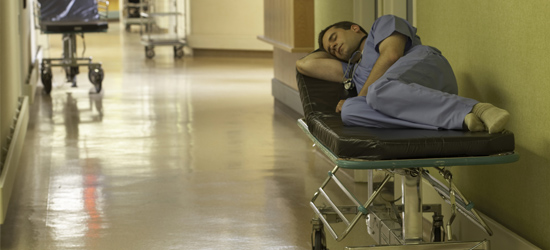In a society where success is often associated with long hours of work, some things that were never considered by previous generations of Americans are now becoming very prominent. One of these is time management. While working longer hours and weekends is something that most of us consider relatively normal, scientists have taken a look at the effects of sleep on cognitive ability.

In the New York Magazine article “Snooze or Lose,” researchers have discovered something rather alarming about the sleep patterns of adults and children, alike. Dr. Avi Sadeh of Tel Aviv University conducted a study on the effects of sleep deprivation in grade schoolers. In short, what he found was that a perfectly capable 6th grader performed like a “mere 4th grader” when that 6th grader was “slightly sleepy.” In other words, one hour of lost sleep negated the positive effects of a whole 2 years of education. However, it doesn’t end there.
College life is notorious for its late nights of studying and long days full of information-intense course work. According to this article from the the Johns Hopkins Newsletter, for many, sleep has become a luxury instead of a health consideration. Judging from the article above, this type of mindset may be ingrained in students during their grade school years, thus making it even more difficult for them to find a balance between sleep and work while attending institutions of higher learning. College course work is based off two main types of cognitive processes: memory and problem solving. Both of these are severely impaired by loss of sleep.
The problem does not end here, though. Eventually, this school of thought leads to major and even life-threatening problems. For a businessperson or someone in a similar pursuit, impaired cognitive ability may just slow them down. However, for medical interns that hold lives in their hands, this can be a deadly matter. According to this article excerpt from High Beam Research, the New York State Department of Health has served a hospital in Mannhattan with a $20,000 fine for working residents above the allowed consecutive hours. On average, these residents worked shifts longer than the legal limit of 24 hours-30 to 36 hour shifts. These added up to work weeks of 85 hours, which is 5 over the legal amount.
In addition to sleep deprivation, a phenomenon called “sleep inertia” also has negative effects on a medical resident’s performance. In this Medical News article, the adverse effects of doing important or sensitive tasks less than 15-30 minutes after waking severely impairs the abilities of many residents. According to the article, when given a test that involved adding together two randomly generated two-digit numbers, performance declined when participants were given the test shortly after being awakened from sleep. As many doctors are awakened in this fashion while on call or working the night shift, this is a point that should be taken seriously.
Surgical residents such as these are placed in a very difficult position. If the aforementioned studies are correct, we are placing an untenable amount of stress on these medical residents, our future surgeons. If their cognitive abilities are impaired, malpractice becomes inevitable, not because of any laxness on the part of the doctor, but because of a lack of proper rest.
This problem is not a reflection on just individuals, but on society and its pressures as a whole. Sometimes in our rush to get more done and speed things up, we neglect the foundations that allow us to function to the best of our ability in the first place. Until these pressures are made to subside and the problems assessed, we may see many more negative side affects of this lifestyle crop up.
I really think that you’ve nailed the point that lack of sleep is a problem with society and what is acceptable.
It’s well known that falling asleep at the wheel is a major cause of accidents, and that tiredness (as you mention) results in poor cognitive function. However people who wouldn’t dream of driving under the influence of alcohol will readily drive when exhausted.
It would take a major change of mindset and culture to change this and make it socially unacceptable.
Here are a couple of neat gadgets to help you sleep better and wake up easier:
http://www.glotosleep.com A high-tech sleep mask which makes you fall asleep quickly by helping relax and clear your mind of thoughts that keep you awake.
http://www.sleeptracker.com A device you wear on your wrist. It tracks your sleep cycles and wakes you up at the most appropriate time within a specified time window. You wake up refreshed instead of groggy.